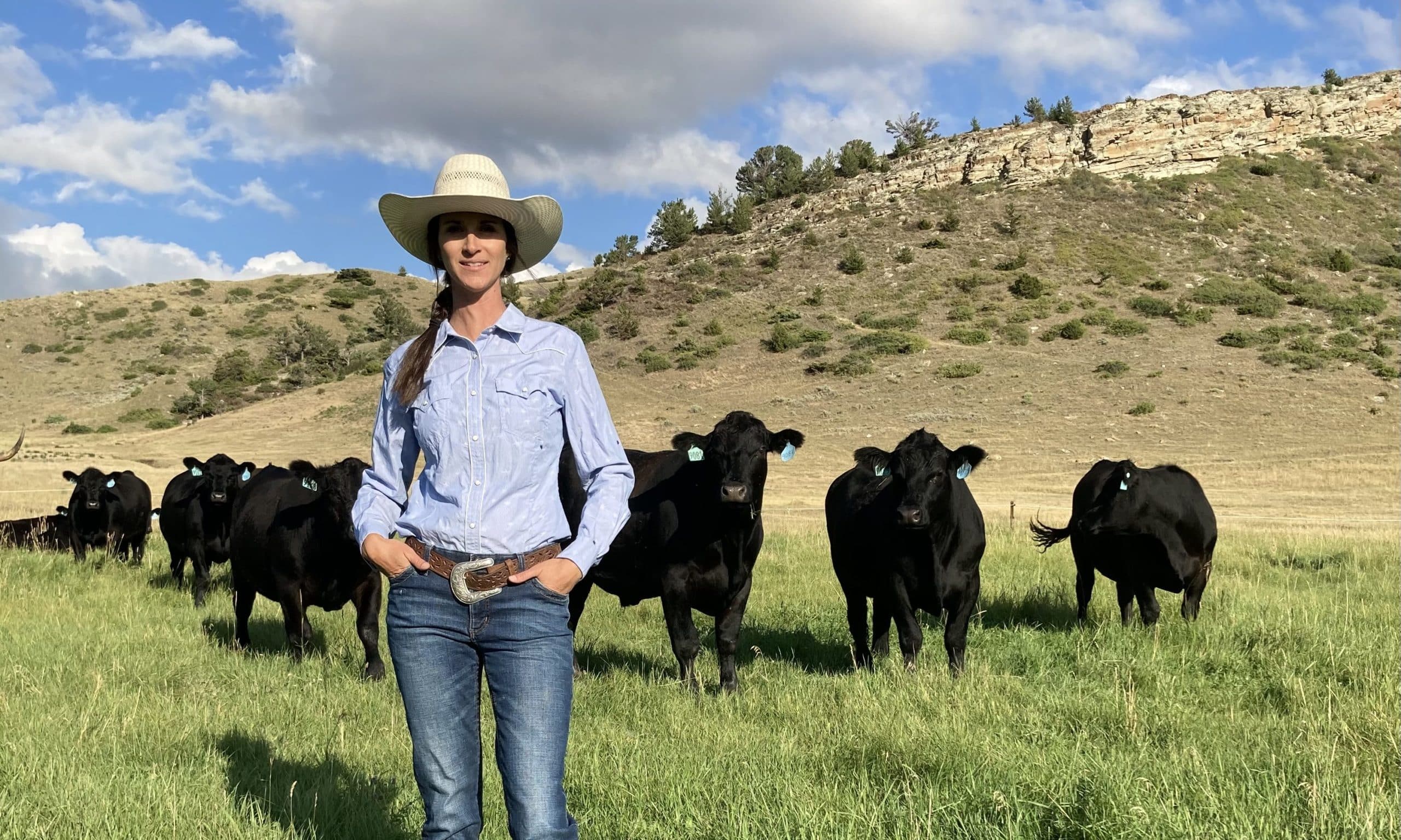Where Human, Animal, and Soil Health are Interwoven



Jaimie Stoltzfus and her husband Austin are behind Cowgirl Meat Company, a regenerative cattle and pork ranch just outside McLeod, MT along the West Boulder river. Since 2014, the couple have been raising meat for their family with human, animal, and ecological health at the center of their work.

It all began when the couple had kids while managing the commercial ranching operations her husband inherited. Jaimie started taking seriously the human health implications of the meat her kids were eating, and she dreamt of raising a pig without hormones or industrial animal feed to supply her young family with pork. Her husband suggested getting two pigs because pigs don’t do well alone. She came home with ten pigs instead.
In that first year, Jaimie managed to sell most of the meat to family and friends who were excited about her project. Since then, all the meat from Cowgirl Meat Co. is raised as if Jaimie were going to feed it directly to her family.

“It’s important that people are able to feed themselves. I’m excited to see more local food hubs and I want to be a part of that shift. A huge driver is health. We can make our kids sick by what we feed them.”
Jaimie describes how most industrial animal feed, especially for pigs, can contain a mixture of waste and chemicals without any documentation of where they came from. These can impact the health of humans who eat the animals, too.
Cowgirl Meat Co. raises pigs in pastures with cover crops grown intentionally for them to eat. Jaimie and her husband like experimenting to find which crop will yield the highest nutritional benefit for the pigs, and in turn, the humans who eat them. They’ve tried chicory, plantain, and kale, and found through nutrition testing that there were huge increases in Omega 3 and Vitamin B in the meat of pigs who ate these crops.
To make the pork more accessible, Jaimie raises the pigs in separate batches, one on organic feed from Big Sky Organics, and the other on non-organic feed from Big Timber. “I want people to be able to access high quality pork raised with care, so I do a non-organic option to make my pork more affordable.”
On the cattle side of the operation, Cowgirl Meat Co. is deeply intentional about the impacts to our health and the health of the ecosystem when raising a herd of black angus. All cows are raised until they are two years old before processing, which is atypical in the industry. Most cows are raised only for 12 to 16 months. Waiting to harvest them increases the intermuscular fat content, which is more nutrient dense for human consumption.
Using intensive regenerative grazing methods, Jaimie and her husband ensure that the cows are positively impacting the ecosystem in which they’re raised. With 1,500 acres of sub-irrigated land, the cows spend just a day or half day in each pasture. The cows are notably docile and friendly because they are so accustomed to human interaction. “They know us because we’re here moving them all the time.”
During the late summer, they take five cows per week to town in Big Timber to process them, choosing the fattest from the bunch.
“This is just as much about land stewardship as it is about the final food product. Cattle are a tool. We can’t have great soil without cattle raised well.”
“This is just as much about land stewardship as it is about the final food product. Cattle are a tool. We can’t have great soil without cattle raised well.”

Jaimie points to a pasture where the cattle recently were, and the grass is already growing back with a deep green color. She describes how the grass is noticeably richer and denser in the weeks after cattle have passed through. In the winter, the cattle feed on hay bales placed across the landscape so the hay mulches the soil.
Jaime also understands how our food system got to this point, where human and animal health isn’t a priority. “I understand why feedlots need to exist in our dominant food system. There’s no way you can supply beef to New York City without them,” she says. “But I want to do my part in doing things differently.”
“Now we’re always thinking about what we can do to impact the soil. I was initially skeptical. To do intensive grazing seems like a lot. From commercial ranching, we had to change our perspective and open our minds, but now we’re seeing the fruit of that.”
Check out Cowgirl Meat Co.’s Abundant Montana Listing to learn how to support their local food system work.
